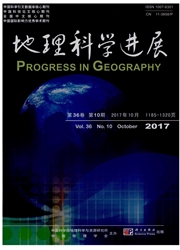

 中文摘要:
中文摘要:
目前水体水质评价方法众多,如何筛选合适方法对水质状况进行科学评价,是环境保护中一项基础性和重要性工作。以广东省某水库2008年-2013年水质监测数据为基础,利用单因子评价法、综合污染指数法、模糊综合评判法和灰色关联分析法对水库水质进行了评价,对比分析了这四种方法评估结果的合理性以及存在的缺陷。研究表明:(1)不同方法的评价结果存在较大差异。灰色关联分析法评价的水质状况最好,模糊综合评判法的评价结果与其他方法评估结果的一致性最高。(2)不同方法受权重的影响也存在较大差异。灰色关联分析法受权重影响最小,而模糊综合评判法受权重影响最大。(3)灰色关联分析法则适用于初级使用者;模糊综合评判法适用于相关知识和经验丰富的人群;单因子评估法适用于流域最严格水资源管理;综合污染指数法仅能确定水体是否污染,但不能确定具体水质级别,可以作为一种补充方法。(4)为准确评估水体水质级别,减少权重和方法对结果的影响,建议采用多种评估方法进行综合分析。
 英文摘要:
英文摘要:
Although there are a number of water quality evaluation methods,it is a basic and scientific work to choose a suitable method for water quality evaluation.In this study,four evaluation methods(i.e.,single factor evaluation,comprehensive pollution index method,fuzzy comprehensive evaluation and gray relational evaluation)were used to evaluate the water quality condition of a reservoir in Guangdong province according to the monitoring data during 2008-2013.The rationality and defects of these four methods were also explored by comparing their results.The results showed that:(1)Remarkable differences existed among the results obtained by different evaluation methods.The evaluation results of gray relational analysis were the best while those of single factor evaluation method were the worst.(2)The different evaluation methods were influenced differently by weight.The gray relational analysis was least impacted while the fuzzy comprehensive evaluation method was highly influenced.(3)The fuzzy comprehensive evaluation method is suitable for users with rich experience in determining the weight,otherwise,gray relational evaluation method is recommended.Single factor evaluation method is suitable for the most strict water resources management.Comprehensive pollution index method could only determine whether the water bodies were polluted,but could not determine the degree of water quality,so it can be used as a complementary method.(4)In order to evaluate water quality accurately,and reduce the effects of weight and method,a variety of evaluation methods are recommended.
 同期刊论文项目
同期刊论文项目
 同项目期刊论文
同项目期刊论文
 Water quantity and quality simulation by improved SWAT in highly regulated Huai River Basin of China
Water quantity and quality simulation by improved SWAT in highly regulated Huai River Basin of China CLASSIFICATION OF FLOW REGIMES FOR ENVIRONMENTAL FLOW ASSESSMENT IN REGULATED RIVERS: THE HUAI RIVER
CLASSIFICATION OF FLOW REGIMES FOR ENVIRONMENTAL FLOW ASSESSMENT IN REGULATED RIVERS: THE HUAI RIVER Water quantity and quality optimization modeling of dams operation based on SWAT in Wenyu River Catc
Water quantity and quality optimization modeling of dams operation based on SWAT in Wenyu River Catc 期刊信息
期刊信息
